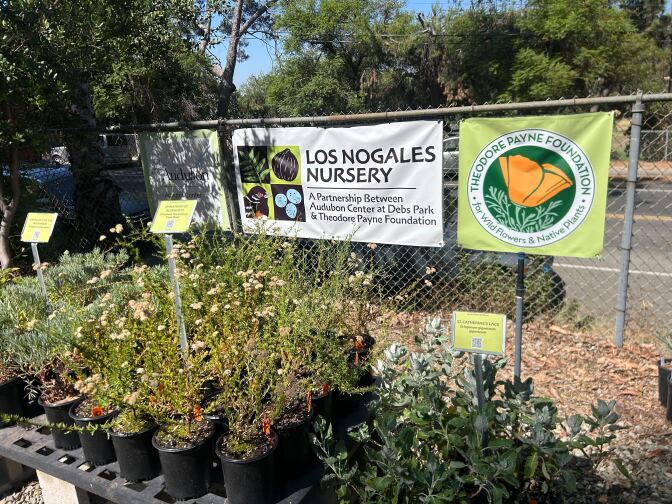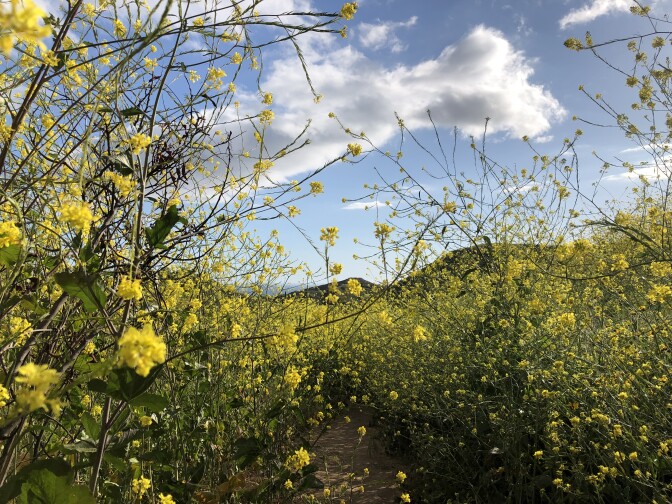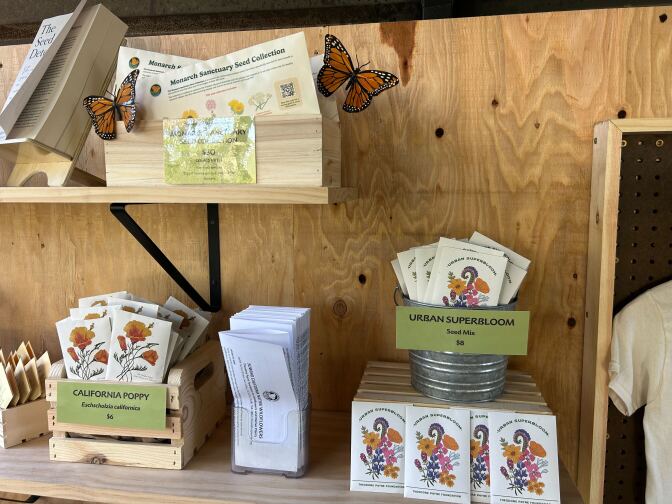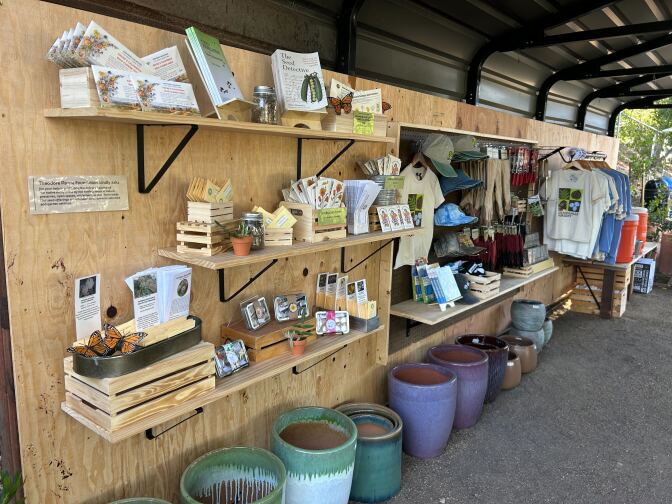This story is free to read because readers choose to support LAist. If you find value in independent local reporting, make a donation to power our newsroom today.
Los Nogales Nursery at Debs Park wants you to grow more unique native plants at home

A tiny but mighty nursery tucked inside the Audubon Center in Debs Park opened its doors Friday, offering Angelenos a variety of rare native plants and seeds. Organizers said the Los Nogales Nursery is one way to encourage more people to discover and grow in their native gardens.
The nursery is in partnership with the center and the Theodore Payne Foundation.
“Our hope is to normalize native plant landscapes,” Katie Tilford, director of development and communications for the foundation, said.
California has lost more than 80% of its unique plant species, but despite the drop, Tilford said the state is still a biodiversity hotspot.
“That basically means that we have a really high level of unique plants that are not found anywhere else,” she said.
A first look at the nursery
Some of the native seeds, such as baby blue eyes and blue gilia, are not so easy to come by, but the nursery does offer them.
You’ll also find a variety of hummingbird sage, buckwheat and monkeyflowers — most of which you can smell on your walk toward the nursery.
Kenturah Davis of Altadena picked up a yarrow and milkweed plant as one of the nursery’s first customers. Davis said she’s in the process of rebuilding her home following the Eaton Fire and she’s doing so with native plant landscaping in mind.
“I got into plants during the pandemic,” Davis said. “I think there's all ways to sort of get involved and excited, and you can start small, even with just container plants.”
Along one wall, there are seed packets, such as spring mixes, plants that attract monarch butterflies, poppies and others. There's also a selection of gardening tools, nature books, planters and nursery merch.
What if I’m not a gardener?
Amy Greenwood, executive director of the Theodore Payne Foundation, said you're not a gardener until you've killed a lot of plants.
“There's no shame in that,” Greenwood said. “You're going to have to experiment, but come and talk to us about what's easy to grow. You don't need to know everything, start with easy.”
You also don’t need a big yard to grow native plants, Evelyn Serrano, director of the Audubon Center at Debs Park, said.
“I'm someone who has a tiny apartment with a tiny balcony, and on my tiny balcony, I have potted California native plants,” Serrano said. “You don't need a lot of space, and it can be easy. I could not keep anything potted alive, and just with time and practice and building that connection to the plants.”
How to visit
Gardeners and curious planters can visit the nursery each week from 9 a.m. to 3 p.m. Friday through Sunday.
The foundation and center will also host workshops, gardening classes, identifying native plant courses and other educational events. More information can be found at the nursery website.
Why are the plants endangered?
Climate change is one culprit. Another is the highly invasive Black Mustard plant, a non-native, yellow, flower-like plant that has taken over many California hillsides.

Butterflies, bees and birds can use native plants for food, reproductive services and shelter, Tilford added, and once the endangered greenery is lost, it’s gone forever.
Planting native plants isn’t enough, Tilford added.
“We have to also mitigate the invasive plants,” Tilford said. “Which is a lot less sexy to talk about, like, we’ve got to go pull weeds, but we've got to go pull the weeds because they're crowding out the places where native plants would typically be growing.”















